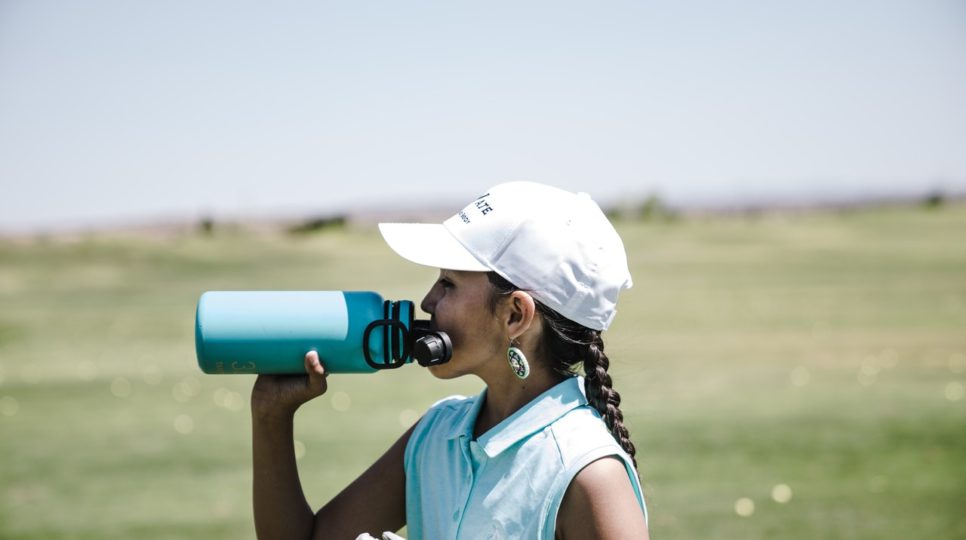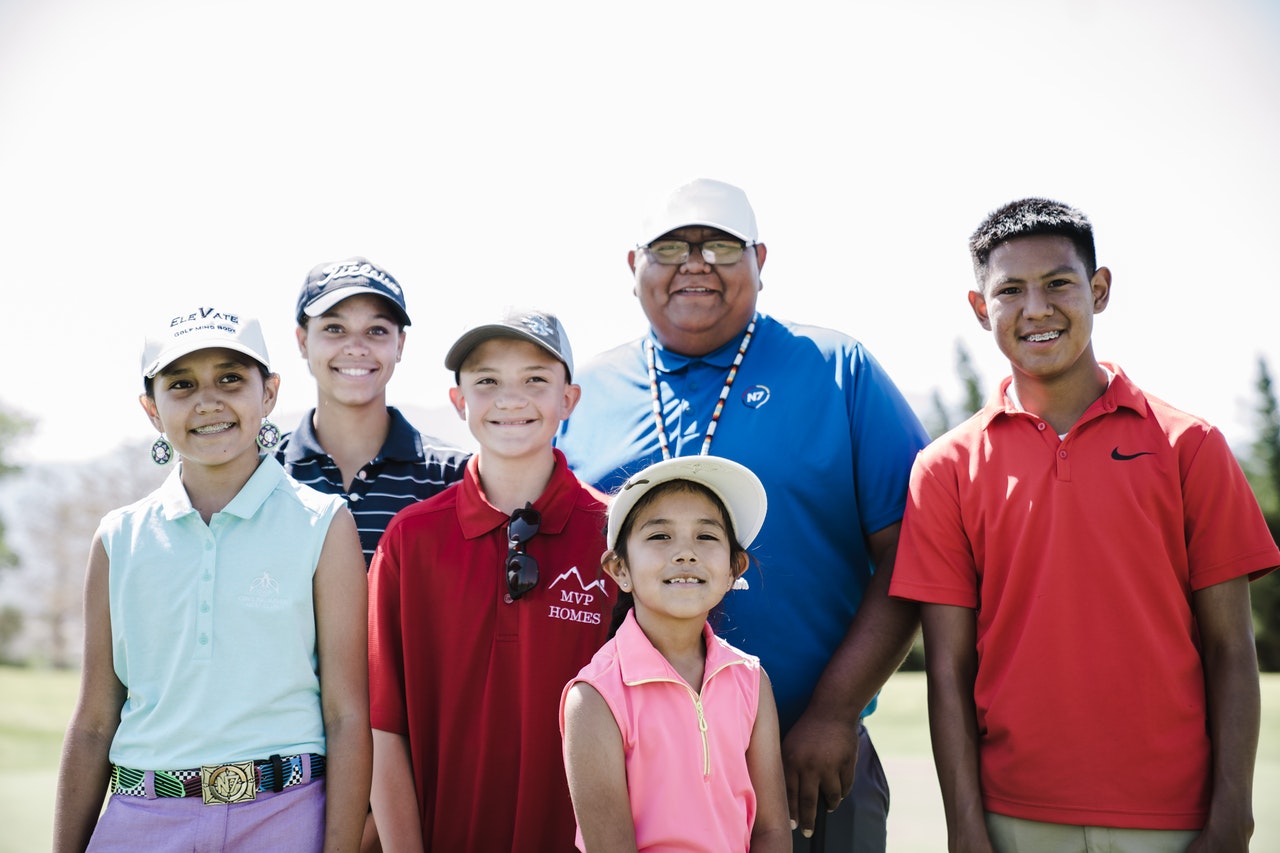Golf is an aristocratic game that requires self-control, concentration and etiquette. For some people, golf seems to be elite entertainment, but in fact, this game is one of the most popular sports in the world.
Golf isn’t just a sport, though. It’ll enrich the inner world of your kid, develop their self-discipline and help them build relationships with other people.
If you decide to start golf lessons for your kids, you’ll be making a huge contribution to their development, not only on the athletic level but also on the intellectual level.
In this article, For Kids will outline everything that parents need to know about golf for kids, starting from the benefits of golf for children, what is the suitable age to start golf lessons, and how to choose a proper golf academy and course.
Golf for kids
Table of Contents
What is the best age to start golf lessons for kids?
The best age for your kid to start golf lessons is six to seven years of age, as their co-ordination will already be well-developed at this age. The child will be disciplined enough to stay focused for a long time, and they’ll be fit enough to be mobile.
If you want to develop a professional junior golf player, it is best to start at this age, without any delay.
On the other hand, some say that it’s better to start teaching a child to play golf from the second year of his or her life, but in our opinion, this is too early.
However, many golf champions began their journey at 14 or 15 years old and had significant achievements anyway, thanks to hard work and family support.
Boys and girls: Is there any difference?
There is no gender separation in golf. This sport is equally suitable for both girls and boys. Representatives of both sexes can achieve success and compete with each other.

You may also find this article useful: How to choose Academy, Coach & Golf clubs
Benefits of golf for kids
From the outside, it may seem that golf is a sport for lazy people. In fact, it’s not! Let’s take a closer look:
Interesting facts
In Finland, a study was conducted during which physicians observed men who lead a sedentary lifestyle for five months. During the experiment, the participants were invited to play golf three times a week.
Before and after the experiment, their physical characteristics (weight, pressure, flexibility, endurance, speed and such) were measured and compared.
The results showed that the men’s health improved in general, according to the following indicators:
- Their weight decreased
- Their waist circumference decreased
- Their endurance level and speed increased (measured on a treadmill)
You can safely say that the benefits of golf are enormous for both kids and adults, and here are some more of them.
Physical and mental benefits of golf for kids
1. Moderate exercise
Although golf is a strategic game, there are some physical activities involved, such as walking, swinging and pivoting.
Thanks to golf, the muscular belt is strengthened. The muscles within the back, the abdominals, the obliques and the backs of the thighs are worked.
At the same time, physical exertion during the game is minimal in comparison to some other sports, so fatigue doesn’t occur quickly.
As a result, the heart muscle isn’t put under stress.
2. Good for sight
Any ophthalmologist will say that the best exercise for the eyes is to look alternately into the distance, then in front of you and so on. That’s what happens during a golf game!
First, golfers learn to focus on the small ball when it is close to them, prior to their swing, and then to focus to look at it from a distance.
Golf also improves eye-hand coordination in junior golfers.
3. Safe environment.
Golf is considered the least traumatic sport, as it’s a non-contact sport and the golf course is the safest place for sports.
Therefore, you can be absolutely calm about letting your child go to workouts.
4. Develops discipline, responsibility and emotional control
Golf is played without referees. This allows the child to take responsibility for their actions and eliminate mistakes.
Additionally, not every stroke can be successful. “Ups and downs” on the playing field will allow the child to develop such qualities as:
- Control over their emotions
- Concentration (before the blow)
- Maintaining a positive attitude
Golf will teach you and your kid to analyze the situation and predict moves.
5. Fresh-air experience
Every parent knows how useful it is for a growing body to be out in nature, away from computer games and the dust of the megalopolis.
Golf gives kids an excellent chance to spend a few hours in the fresh air, as most golf courses range from 30 to 200 acres.
Studies have revealed that constant exposure to green areas helps alleviate anxiety, reduce stress and make the body more relaxed.
Plus, exposure to sunlight helps the body absorb vitamin D, which is important to calcium formation and deposition on the bones and teeth of your child.
6. Teaches etiquette
Golf pays great attention to etiquette. Since golf is played without judges, it encourages participants to respect each other, follow the rules on their own and be honest. That’s why golf is known as a gentleman’s game.
7. Sociability and communication.
While being engaged in golf, your child will have the opportunity to make good friends who are also interested in such a noble sport.
Since golf is not a fast-paced competitive game like basketball and soccer, there is plenty of time to interact with others.
As a general rule, children who engaged in the same activity will unite and establish friendly relations.
Cons of playing golf for children
Although golf is one of the safest sports, not everything is perfect, and of course, golf comes with a few drawbacks.
Muscle strain
While playing golf, there is the possibility of overstretching of the muscles, as you need to make your blows powerful and sharp.
How to prevent this?
Before the game, it’s highly recommended that you warm up well by doing several squats and bending from side to side. You need to warm up your muscles for at least 10 minutes.
Pain
Professional golfers often suffer from back pain and loin pain, as well as pain in the elbow joints.
This is also connected to actively working with a golf club without a preliminary warm-up.
Sunstroke
Since golf is mostly played outdoors, there’s a chance you’ll get sunstroke or a sunburn due to over-exposure to sunlight.
Every parent should take precautions to keep their children safe and avoid this problem through good hydration, wearing a hat and using sunscreen.

Medical contraindications of playing golf for juniors
There are no strict contraindications for kids when it comes to playing golf. This game is one of the fewest sports that suits almost everyone.
The only requirement may be the absence of disorders involving the child’s musculoskeletal system or nervous system. If your child doesn’t have any obvious deviations from the medical norm here, you can safely send them to the golf course.

